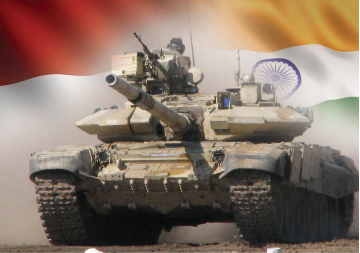Even as the debate on the Lokpal Bill hots up with the draft Lokpal Bill of the Government likely to come up before the Parliament during the ongoing session, we present below a shorter comparative analysis of the different Lokpal Bills - The Lokpal Bill 2011, The Jan Lokpal Bill 2011, The National Campaign for People’s Right to Information Bill and The Bahujan Lokpal Bill 2011 -- by an acknowledged legal expert,
Justice S.D. Dave, a retired High Court judge.
Preamble
At the outset, it must be mentioned that the Preamble of the two Bills, the Lokpal Bill, 2011 introduced by the Government (hereinafter referred to as LKPG) and the Jan Lokpal Bill (hereinafter referred to as LKPJ) underscores the difference in intent and purpose that has shaped the two bills. In the legal sense of the term, Preamble is the part of the Bill that helps the Interpreting Court to find out the real intent and purpose, in a rather circumscribed manner of a particular provision of the concerned Bill. The LKPG emphasizes on the inquiry into allegations of corruption against certain public functionaries whereas the LKPJ emphasizes upon investigation of certain offences and to detect corruption by expeditious investigations, prosecuting the guilty and on timely redressal of certain types of public grievances and the providing of the protection to whistle blowers. With regards to the establishment of the Lokpal, the proponents of the Jan Lokpal Bill believe that the institution of Lokpal, must remain independent of the Government in terms of financial, administrative and functional activities. On the other hand, the proponents of the Government introduced Bill believe that the institution of Lokpal must remain under the ambit of the Government. On the question of the Selection Committee/Search Committee referred alternatively in different Bills and the source of much controversy and heated debate, it is necessary to appreciate that the Lokpal Bill of the Government ensures a three tier mechanism for the eventual selection of members who will eventually constitute the Lokpal. This process includes both the President of India and the Chief Justice of the Supreme Court who have been assigned an important role to play and to utilize the wisdom and discretion in the appointment of the Lokpal. The Jan Lokpal Bill, in effect, rests all powers on the Selection Committee. A key point of departure amongst the two Bills is that the Government Bill ensures that people from all walks of life can aspire to become members of the Lokpal whereas the Jan Lokpal Bill gives members of civil society with an unimpeachable integrity a place of prominence in the Selection Committee.
Jurisdiction of the Lokpal
The jurisdiction of the Lokpal Bills has one point of serious contention i.e. whether the Prime Minister must come under the ambit of the Lokpal. Whereas the Government Bill has proposed that the Prime Minister can be investigated only after he demits office, the Jan Lokpal Bill takes the other side of the spectrum i.e. the office of Prime Minister must come under the purview of the Lokpal without any safeguards. In this respect the provisions of the NCPRI draft ensures a middle ground approach which is followed by ensuring certain safeguards in procedure and substance. One of the substantial safeguards merits a special consideration i.e. the Prime Minister, if under the possession of certain information critical to national security/national interest is not under an obligation to disclose it to the public without a genuine requirement or requisite conditions. There is a genuine merging of conflicting provisions regarding the office of the Prime Minister which must be seriously considered by the Parliament when it drafts the final Bill.
Complaint
On the question of what would constitute a complaint under the Jan Lokpal Bill, we see a vague definition that includes any allegation of corruption or a request by a whistleblower. The Government Bill on the other hand is far more precise in defining corruption as those offences punishable under the Prevention of Corruption Act, 1988 and stipulates that a complaint must be in writing. By laying down certain parameters of what should constitute corruption, it ensures that all the frivolous and malicious complaints are kept at bay. The Government version on the question of definition, deserves to be heard and debated as most of the fears of unmanageable complaints and an Orwellian body can be tackled by adequately defining corruption with the end-goal of ensuring that public delivery of services and transparency can be improved.
Inclusion of Judiciary
The Government Bill has proposed that the Judiciary remain outside the ambit of the Lokpal. In its defense, it has raised the contention that the Impeachment Mechanism under the Constitution has worked with sufficient efficiency. This contention is seriously debatable as it has been noticed in the past and with increasing frequency that the process of impeachment is long drawn, uncertain, occasionally dicey and has even acquired a political color in certain cases. In this context, the NCPRI provides us with a workable roadmap via the Judges Accountability Bill which suggests a strong, effective, precise and yet simple mechanism.
Inclusion of the Lower Bureaucracy
The lower bureaucracy in the country is the machinery of the government which interacts with most of the citizens of the country on a day-to-day basis. It must be recognized that this is the area which has faced the maximum ire of the citizens of the country. Therefore the need for the lower bureaucracy to have a sort of a mechanism to check corruption is the essence without which any anti-corruption law is futile and incomplete. The need for the State Lokayuktas emerge from this aspect of tackling corruption. A key legal issue that needs to be understood is that under the Federal Structure of the Indian Constitution, the administration of the State Lokayuktas by the Central Union under the ambit of Lokpal will be perceived as an undue interference in the Federal Structure of the Constitution. But leaving the Lokayuktas to each one of the States will lead to a divergence from the vital and substantial aspects of an anti-corruption law, thus reducing the efficacy of the legislation vis-à-vis the tackling of the lower bureaucracy. One of the suggestions being offered is that a model legislation needs to be designed that must be implemented by all the states but this too will not reduce the conflicts between the centre and the state. We could think of the Lokpal Act with certain legal stipulations which should be made applicable to the State Lokayuktas.
Inclusion of the NGOs
Non-Governmental Organizations exist at all levels in every part of the country with many of them having a proven track record. It must be recognized that they perform an extremely important and valuable role in ensuring access to rights, social security measures, providing citizens with access to the basic necessities of life, documenting reports, bringing to the attention of the Government new areas which require serious attention and adequate actions, and approaching Courts and soliciting judicial intervention. Financed by voluntary donations, governments and foreign donors, their presence in the country is phenomenal in terms of finance, activities, numbers etc. and therein arises the need to regulate their transparency, accountability, honesty and corruption free working environment. The Government Bill has therein pushed for the need to recognize them as public servants who must fall under the ambit of the Bill. Both the Jan Lokpal and the NCPRI Bill do not include them under the ambit of the Lokpal, as they believe that such institutions will loose their interest in public services as the final consequences. But a holistic view of their role, the finances involved, the increasing number of staff/employees involved and most importantly the crucial and indispensable function they have in our society today, makes it necessary that they be brought within the ambit of the Lokpal.
Legal definitional challenges of corruption
The complaint is the starting process of any anti-corruption process and therefore needs to be defined precisely and effectively. While the Jan Lokpal Bill has an expansive and vague definition that includes any allegation as corruption, the Government Bill is far more precise by ensuring that the offences under the Prevention of Corruption Act, 1988 can only constitute as corruption. The NCPRI, apart from the 1988 Anti-corruption legislation, also includes offences under Chapter IX of the Indian Penal Code. It also includes Prevention of Money Laundering Act or any other law or legal instrument that the Government of India may from time to time notify. Another provision in the Jan Lokpal Bill that merits consideration is that the complaints can be lodged against even someone who is not a public servant, if he/she has the capacity to indulge in corrupt practices without being a public servant. Though well-meaning in principle, this again runs the risk of overburdening the Lokpal.
The salient provisions of the Bahujan Lokpal Bill, 2011
The need for a Bahujan Lokpal Bill, 2011 arises from the fact that the worst sufferers of many forms of corruption are inevitably the Scheduled Castes/Scheduled Tribes and other historically disadvantaged sections of the Indian society. Keeping this in perspective it is necessary that the Lokayuktas and other anti-corruption institutions be properly represented by the disadvantaged sections of the community as per the reservation policy of the Government of India. The investigation and prosecution of the disadvantaged communities must be initiated and conducted by the Central Union Commissions of Scheduled Tribes, Scheduled Castes and other oppressed sections of the society. The proceedings must necessarily be quasi civil and criminal in nature as it would be a reformative/remedial process and not necessarily punitive. Another fear expressed is that the provisions of the Jan Lokpal Bill should not in any manner supersede the existing Constitutional Institutions meant for discretionary favor to the Dalits. While it is necessary to recognize that much has not been achieved in the area of socio-economic justice vis-à-vis the disadvantaged sections of the society, the special provisions are neither necessary nor reasonable. It will lead to classification of corruption allegations on the basis of class, thereby delaying the proceedings and making it increasingly divisive. It also runs the risk of counter-active approach from the remaining citizens. A better way to approach it is through alternative paths to address the visualized caste faultlines, by resorting to mediation and conciliation techniques by the anti-corruption officials to address any such fears.
Detailed version of the Comparison
The views expressed above belong to the author(s). ORF research and analyses now available on Telegram! Click here to access our curated content — blogs, longforms and interviews.




 PREV
PREV

